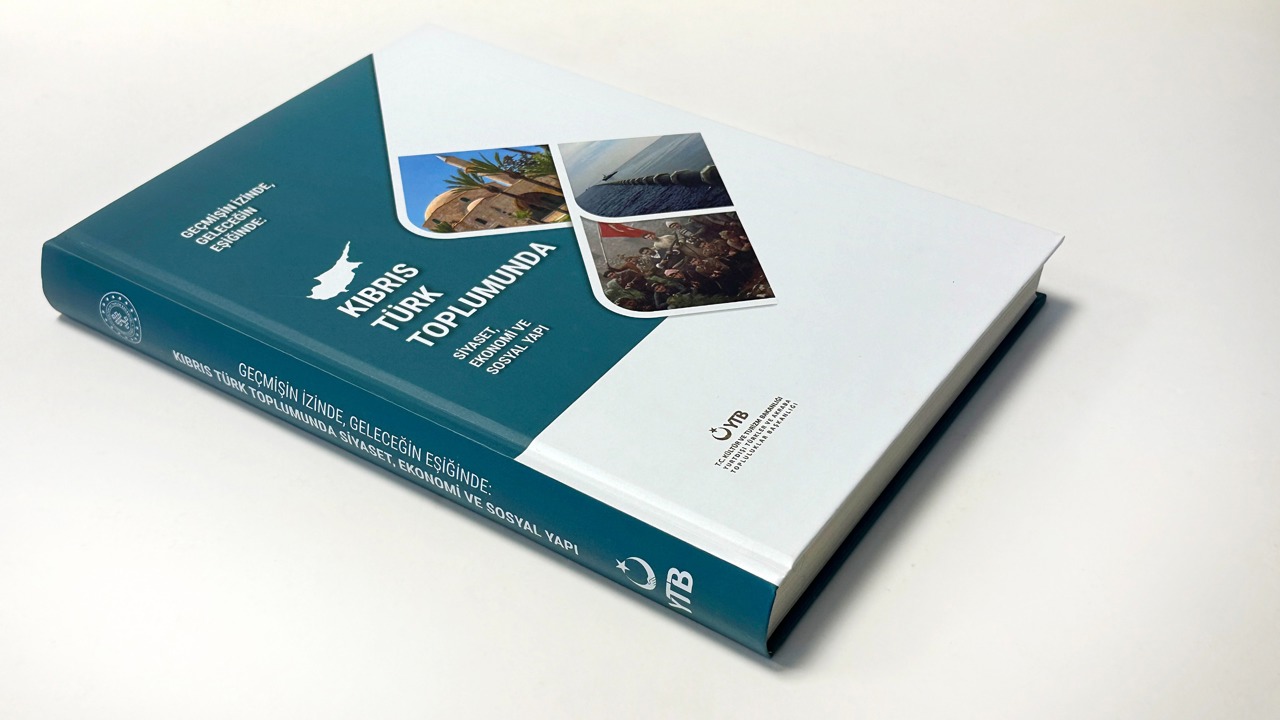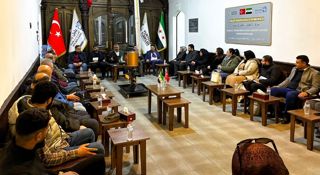In Search of the Past and on the Brink of the Future: Politics, Economy, and Social Structure in the Turkish Cypriot Community
Pazartesi, Ocak 8, 2024
Serving as a driving engine for studies about the Turkic world and offering patronage for a large number of publications concerning the Turkic world since its inception, the Presidency of Turks Abroad and Related Communities (YTB) has unveiled another publication that concerns Cyprus, which has been of particular significant for the Turkish history, ranging from the Ottoman Empire to the Republic of Türkiye.
The book titled In Search of the Past and on the Brink of the Future: Politics, Economy, and Social Structure in the Turkish Cypriot Community was co-edited by Prof. İsmail Güleç, Bilal Kendirci, and Özgür Üçkuş.
Maintaining a unique geopolitical relevance throughout the Turkish history, starting from the times of the Ottoman Empire and culminating in the Republican era and remaining the geographical, cultural, and financial hub of the Mediterranean for centuries, Cyprus has been one of the key survival causes of the Ottoman Empire and then of Türkiye. With that being the case, Cyprus, which is held dear by YTB as part of its efforts, is analysed in the book titled In Search of the Past and on the Brink of the Future: Politics, Economy, and Social Structure in the Turkish Cypriot Community, in a vast range from the Ottoman settlement policy to the culture of foundations, from madrasas and sibyan (primary) schools to the judiciary system, from social and political life to the economic and social Structure , from the realm of religion and belief to the Turkish Cypriot literature. This work is of major importance as it places the Turkish Cypriot community at the heart of its subject.
.jpeg)
The first chapter of the 589 page-long book, which is made up of 19 chapters, concentrates on the Ottoman conquest of Cyprus and the post-conquest policy of settlement. The foundations, one of the most influential bodies on the social and cultural life of the Island following the Ottoman rule, are reviewed in the second chapter of the book. The madrasas and sibyan schools, which had served as a hub of education and culture on the island in the aftermath of the Ottoman rule, are also discussed in detail in the third chapter.
The fourth chapter offers a thorough analysis of the qadi (judge of a sharīʿa court) and judicial systems under the Ottoman and British rules. In-depth analyses over the struggle of survival and organisational actions of the Turkish Cypriot community during the time from the establishment of the Turkish Resistance Organisation (TMT) to the Cyprus Peace Operation are provided for readers in the fifth chapter.
The sixth and seventh chapters deal with the political developments concerning the Turkish Cypriot community from past to present while the eighth chapter discusses in detail the Turkish Cypriot political elites and their transformation.
Titled ‘The Past and Present of the Economy in the Turkish Cypriot Community’, the chapter nine examines how the Turkish Cypriot community was excluded from production opportunities as a result of the intense Greek Cypriot attacks under the rule of the British and the Republic of Cyprus.
The aid shipped from Anatolia to the Turkish Cypriot community, which is one of the key themes for the public at large in Türkiye and the TRNC, is discussed in chapter ten titled ‘The Past and Present of Türkiye's Aid to Cyprus’.
Titled ‘the Importance of Civil Society in the Turkish Cypriot Community’, the chapter nine covers the experiences of the Turks under British rule in terms of civil society, starting from their relations with the Young Turks and the Committee of Union and Progress to the present day.
The chapter twelve offers a review of the Cyprus press while the chapter thirteen covers the settlement, integration, and political organization of the migrants who made their way from Anatolia to the Island as part of an agreement of agricultural cooperation with Türkiye in the aftermath of the Cyprus Peace Operation.
The chapters fourteen and fifteen deal with the judicial system of the Ottoman and British times and local administrations, which play a major role in the Cyprus Issue, respectively.
The chapter sixteen is focused on modern-day education in Cyprus, starting from the Ottoman times. This chapter elaborates on modern-day education in Cyprus, starting from the Ottoman times, as well as its circumstances, and reforms it has undergone.
The chapter seventeen includes a thorough analysis of the Turkish Cypriot literature, in which the themes of the Island, the Mediterranean, nationalism and allegiance to Türkiye are predominant in literary genres.
The last two chapters reviews the realm of religion and belief of the Turkish Cypriot community and Sufi poetry in Cyprus, respectively.
With such a diverse content, In Search of the Past and on the Brink of the Future: Politics, Economy, and Social Structure in the Turkish Cypriot Community is now made available for authors, academics, and students who carry out studies over Cyprus, and readers keen on the cultural heritage of the Turkish Cypriot community.



